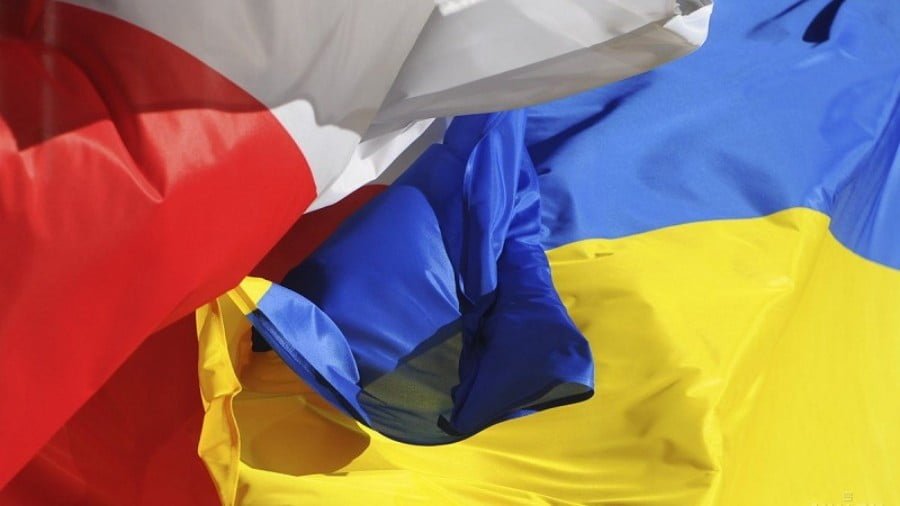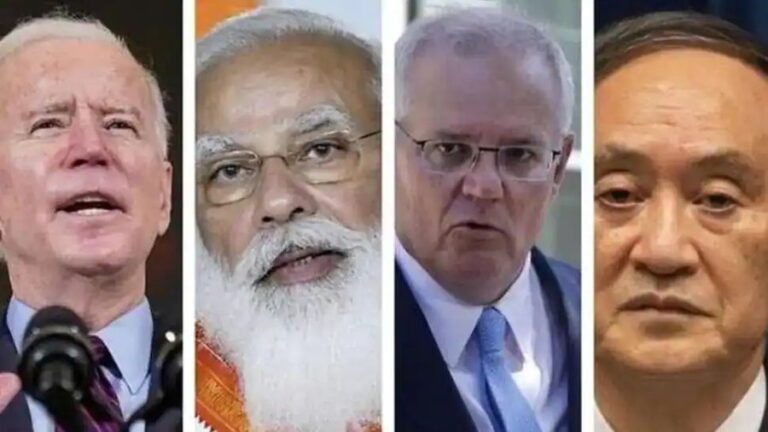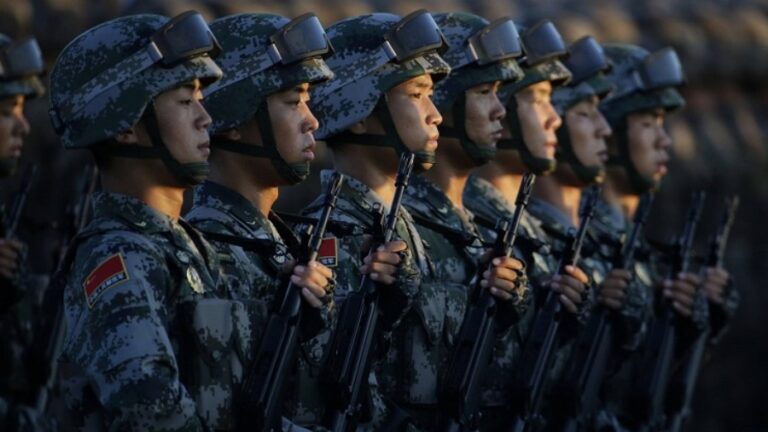Negative Nationalism Is a Potent a Means of Political Mobilization in Parts of Europe
The concept of “negative nationalism”, or basing one’s nationalism based on what they are not, is a potent means of political mobilization in Central & Eastern Europe as evidenced by countries such as Ukraine obsessing over their identity differences – whether real, imagined, or exaggerated – with Russia.
Is Ukraine Turning Into The “Anti-Russia”?
President Putin said late last week while speaking with members of his National Security Council that “Apparently – and regrettably – attempts are being made to slowly but surely turn Ukraine into some kind of Russia’s polar opposite, an anti-Russia, from where we are likely to be getting news requiring special attention in terms of national security.” This point has been touched upon by many experts in the past, most recently RT’s Glenn Diesen in his piece last month titled “Borsch & Bulgakov ours, Brezhnev & Bolsheviks theirs: American propaganda is driving Ukraine’s ridiculous cultural war with Russia”. The Norwegian academic’s point is that the differences between these two fraternal countries aren’t all that serious, but external forces like the US are artificially exacerbating them as part of a modern-day form of nation-building for anti-Russian geostrategic purposes.
Reviving The Spirit Of Nazism
This phenomenon isn’t new neither, but has been part of many Central & Eastern European (CEE) countries’ evolving post-communist nationalisms. I criticized this approach in a recent analysis about how “Russia Warned The West Against Reviving The Supremacist Spirit Of Nazism” where I pointed out how differing interpretations of historical events such as the Soviet Union’s interventions in Hungary and Czechoslovakia shouldn’t become the bases upon which anti-Russian nationalisms are built. It’s taken for granted that there are some domestic forces that sincerely believe that those events and some controversies over certain cultural issues like the ethnicities of artistic figures or the origin of certain cuisines set those people apart from Russia, but there’s a difference between expressing these views in a cordial or contentious manner. Regrettably, the latter approach has become fashionable as of late.
The Psychological Roots Of “Negative Nationalism”
Instead of being proud of what they are, some of these people are more proud of what they aren’t, in this case, Russian. Such “negative nationalist” sentiments are attractive because they’re based largely on emotions, mostly a painful historical memory in the CEE case, which is why their adherents cling so closely to them because it’s a way of coping with the presumed “inferiority complex” that such events provoked more widely in their cultures. It’s of course unfortunate that certain things have happened in the past to result in those feelings, but those who feel that way should move past them in order to become stronger, not obsess over how they make them feel and thus react by espousing extreme forms of negative nationalism directed against modern-day Russia which wasn’t responsible for their ancestors’ suffering. At the same time, these same “negative nationalists” deny Russians the right to hold any negative historical views about their countries.
Polish & Ukraine Examples
To explain, Poles usually gloss over the brief period when their Commonwealth occupied Moscow in order to perpetually portray their historical state as a victim of so-called “Russian aggression”. The reality is much more complex of course, though everything is much simpler when it comes to Ukrainian “negative nationalists” who thought it would be more effective to spin their Nazi-allied ancestors as so-called “true nationalists” than simply acknowledge their evil deeds. Both “negative nationalists” in those examples are driven by a desire to separate themselves and their people’s histories from Russia in the most dramatic ways but also in pretty petty ones too such as the squabbles over certain cultural issues like culinary dishes or shared Slavic traditions. Meanwhile, the US has observed these organic dynamics and selfishly sought to exploit them for its own geostrategic gain against Russia, ergo its support of its regional partners’ narratives, especially via “NGOs”.
America’s Interest In The CEE Countries’ “Negative Nationalism”
Nationalism of any sort is a potent force for political mobilization, but “negative nationalism” is perhaps among its strongest variants since it seeks to remind its adherents of the perceived historical injustices that were committed against them which influenced those folks to hold the views that they presently do. It redirects grassroots anger, especially among the youth, away from their own governments and towards the so-called “other”, which in this case is conveniently Russia. This enables the US to more easily manipulate their people and governments into sacrificing their own national interests through economic, military, political means (ex: lopsided trade deals, disproportionate military obligations like dispatching troops to fight America’s far-flung wars in Afghanistan and Iraq, and openly allowing the US to meddle in their domestic political affairs) so long as they think this is somehow against Russia’s interests too.
“Negative Nationalism” As A Form Of Hybrid Warfare
In other words, America’s weaponized exploitation of “negative nationalism” in the CEE space is responsible for perpetuating its regional hegemony over all of their affairs since the manipulated people wrongly believe that their “sacrifices” (if they even regard them as such, which is unlikely among many) are worth it since this somehow or another goes against Russia’s grand strategic interests. The entire time, however, their own national interests continue to suffer as they remain under the US’ indirect influence. Some of them even go as far as proposing more radical forms of subservience to the US without even being prompted to do so since they sincerely believe that this perverse relationship that they’ve established with it is truly in their nation’s best interests. It can therefore be said that this dynamic is an important but understudied component of America’s Hybrid Warfare against its own “allies” (which in reality function as client states).
Is “Positive Nationalism” The Solution?
It’s not enough to simply critique “negative nationalism” since a solution should be proposed if one sincerely hopes to effect meaningful change. The opposite of this criticized concept is “positive nationalism”, which refers to pride in what one is without obsessing over what they aren’t in relation to others like Russia. There’s plenty that the Polish, Ukrainian, and other CEE people can be proud of that doesn’t have to do with Russia. It’s inevitable that part of their nationalisms will be based on some unfortunate experiences with that country, but they mustn’t comprise the majority of such sentiment. Instead, focusing more on their contemporary geopolitical and other interests as they objectively exist could help formulate more balanced nationalisms that in turn improve the formulation of policy. That’s not to say that it’s realistic to expect them to cut ties with the US, but just that they could at least negotiate with it better to get more in exchange for their “services”.
The “Success” Of The “Ukrainian Experiment”
That’s not happening right now though, nor is it likely to happen anytime soon. The US continue to exploit those two countries and others as part of its grand strategic ambitions to “contain” Russia and even subsequently encroach upon its domestic interests via provocative regional military deployments for instance. Ukraine is poised to become the quintessentially anti-Russian state as a result of the active cultivation of its extreme form of “negative nationalism” against its neighbor despite it ironically being very similar to it in many respects, especially ethno-cultural and historical. The “success” of the “Ukrainian experiment” proves that other nations less close to Russia than the Ukrainians are can obviously be just as radically affected by this form of Hybrid War, if not even more like in the Polish case for example. This “nation-building” model is antithetical to their objective national interests and results in the formulation of counterproductive policies.
Wishful Thinking
In the unlikely event that some of the CEE nations realize that they’re being manipulated by a hegemon that’s many times more powerful than Russia ever was in the sense that the US was able to “successfully” shape their modern-day identities without barely any of their people even noticing, then it would be incumbent upon them to support so-called “pragmatic” political forces that don’t “scare” the US too much by openly calling for an outright revision of relations with it. Rather, genuinely nationalist forces should consider retaining strategic ties with America whenever they suit their actual national interests such as in the trade and investment domains while not shying away from being “hard negotiators” when it comes to other issues, up to and including the possibility of declining a deal if the terms aren’t acceptable to those same national interests. From the Russian perspective, this wouldn’t be the “ideal scenario”, but it’s the most realistic one if it ever happens.
Concluding Thoughts
To wrap it all up, “negative nationalism” is indeed a potent force for political mobilization, one that’s so effective that it’s easily exploited in the CEE space by external powers like the US for anti-Russian geostrategic purposes. Ukraine is the ignoble poster child of this model as recently noted by President Putin, but it’s not the only such example since Poland also figures very prominently on that list as well as the Baltic States among others. The latter are probably “irredeemable” in the sense of them ever embracing “positive nationalism”, but Ukraine and Poland aren’t lost causes, at least not yet. In fact, “positive nationalism” is so potent of a counteracting force in the former right now that Kiev is actively persecuting leading members of the increasingly popular opposition that embrace it, thereby attesting to its grassroots support. In any case, the battle between “negative” and “positive” nationalisms will continue to unfold in CEE for the foreseeable future.







